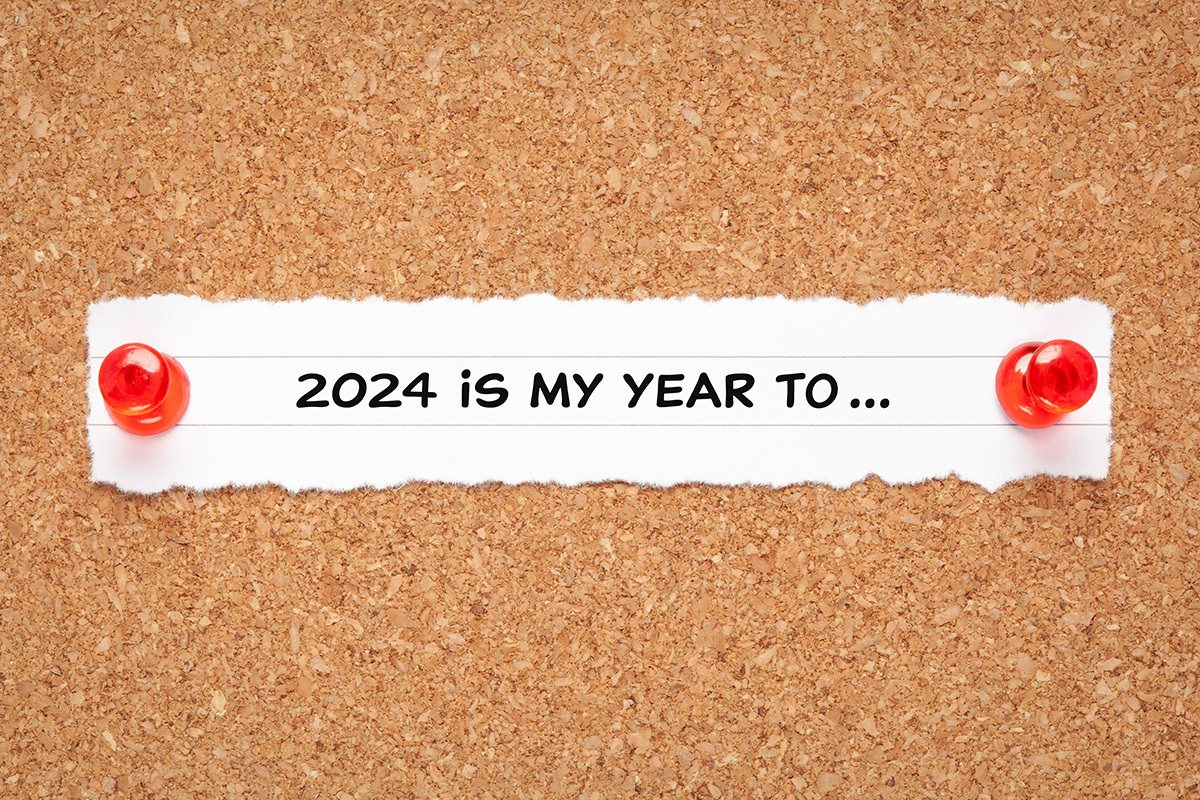Knowing the Importance of Making Financial New Year’s Resolutions to Keep
When the ball drops and the confetti flies, people start discussing promises for the new year. Financial New Year’s resolutions are among the most important ones to make–and to keep. Few things in life create peace of mind and alleviate stress, like having your finances in order.
Today, 35% of Americans are “in the most debt of their lives.” One of the core causes is credit card balances, which make up $1.03 trillion across the country and $7,954 per American. And now that this country just doled out $184 billion on holiday gifts, financial New Year’s resolutions should be considered by most shoppers.
However, it’s not enough to only make the promises. What’s the use in writing something down as a reminder without the commitment to check it off a list? Americans mean well when it comes to financial New Year’s resolutions. According to a WalletHub survey, 36% more people plan to “make” those 2024 promises. Hopefully, the survey will get a follow-up about how many individuals kept their promises this summer.
Taking full advantage of the moment is crucial to seeing those beginning-of-the-year commitments. It’s time to make a plan, write it down, and create momentum for financial wellness and practice in 2024. The experts at Beyond Finance know a few things about financial planning and moving beyond debt, so they offered their favorite ways to shore up your finances in the New Year–and how to stick to them!
Financial New Year’s Resolutions to Make and Keep

Forbes Health reported that the most popular New Year’s resolutions marked or wished by Americans are a trifecta of improvements: fitness, mental health, and of course, money.
However, instead of taking a vow of poverty, it’s essential to be practical. Beyond Finance Chief Financial Wellness Advisor Dr. Erika Rasure, CFT believes it is important not to make those goals for 2024 too lofty.
“Anyone can say they want to create an account with $5,000, minimize entertainment, or sell the expensive car, but if those financial goals aren’t realistic, those are usually the first ones to go–right around mid-January,” said Dr. Rasure. “Economic resolutions that are too ambitious can be discouraging because someone doesn’t see progress. Planning and practice is the way to correct unhealthy financial habits.”
Here are a few other practical resolutions to help with the money.
Automate Savings
You can’t miss what you don’t see. Most banks allow automatic transfers from checking to savings accounts to help people stay committed to removing a nominal percentage of their paychecks. You don’t consider it as much when small payments are automatically removed.
Pay Down Debt
It’s self-explanatory, but it can be challenging to commit to practice. Two popular methods are “Debt Snowball” and “Debt Avalanche.” The snowball method is when you pay minimum payments on all credit cards except the bill with the least amount due. Pay that off, and use that money to go to the second least, and so on. The “avalanche” method is the opposite. Pick the right one and pay it back accordingly.
Consolidate Credit Card Debt
We have thousands of success stories of helping people move beyond debt with a single, consolidated credit card debt payment. A collection of bills each month can be intimidating. Imagine getting rid of that pile of late noticespink slips and paying only one. That’s what we do better than most.
Start the Emergency Fund
Many call it an “emergency fund.” Others call it the “Oh No fund.” Whatever the name, the idea is the same–save enough money to where nothing should be painful to pay for in dire need. Life events are much easier to cover, like the car breaking down or losing a job, with at least 3 to 6 months of current salary in the bank.
Plan Retirement
Before the calendar flips, someone is a decade or two in their career. Before a couple of significant promotions or job changes, it’s time to see that AARP card in the mailbox. Among all financial New Year’s resolutions, this is the one that could be the most important and usually done the least. Use 2024 to maximize your 401K or HSA, understand retirement visions, and do whatever it takes to stay apprised of retirement trends.
Manage the Actual Cards
A common myth with credit cards is that someone can have too many or too few. Experian reports the average American has 3.84 credit cards. Look into the APR rates. Investigate increasing limits to help the debt-to-income ratio. Work with the creditor to have payments on payday to prevent late fees. Several ways to manage the cards can help financial wellness in 2024.
Make a Budget
How often has a monthly budget been derailed by an impulse buy in the mall or a targeted sale from Amazon? So much for the budget, and if it’s that simple to break it once, it will happen again. Use a spending tracker, a homemade spreadsheet, coupons, and cut corners–anything will help if they’re made into habits.
Now that 2024 is here, financial wellness can become attainable with enough dedication to keep the monetary New Year’s resolutions. Moving beyond debt is more than possible; it’s probable. You can do this!
